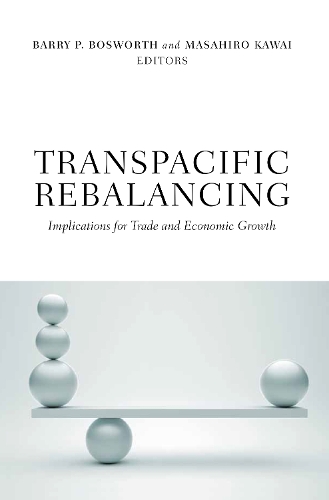
Transpacific Rebalancing: Implications for Trade and Economic Growth
(Paperback)
Publishing Details
Transpacific Rebalancing: Implications for Trade and Economic Growth
By (Author) Barry P. Bosworth
Edited by Masahiro Kawai
Bloomsbury Publishing PLC
Brookings Institution
20th January 2015
United States
Classifications
Professional and Scholarly
Non Fiction
International relations
382.091823
Physical Properties
Paperback
284
Width 156mm, Height 234mm, Spine 20mm
494g
Description
Persistently large external imbalances in the world economy contributed to the outbreak of the recent financial crisis. The current account imbalances were particularly severe among the economies that border on the Pacific. The depth and breadth of the global recession also demonstrated the need for a coordination of national policies to achieve a sustained recovery. While the magnitude of global-trade disruption led to some reduction in the size of the imbalances, closer examination suggests that the progress may prove temporary. On the other hand, significant changes in the underlying patterns of saving and investment suggest that some of the recent rebalancing may prove to be more permanent. Are such imbalances really a problem If so, why and for whom And what should be done about them
Author Bio
Barry P. Bosworth is a senior fellow in Economic Studies at Brookings, where he holds the Robert V. Roosa Chair. His previous books include Productivity in the U.S. Services Sector: New Sources of Growth (Brookings), which he cowrote with Jack Triplett. Masahiro Kawai is project professor at the Graduate School of Public Policy, University of Tokyo. He was dean of the Asian Development Bank Institute from 2007 to 2014. Before this, he was special adviser to the ADB president in charge of regional economic cooperation and integration and professor of economics at the University of Tokyo's Institute of Social Science. Kawai served as chief economist for the World Bank's East Asia and the Pacific Region from 1998 to 2001, and as deputy vice minister of finance for international affairs of Japan's Ministry of Finance from 2001 to 2003.
